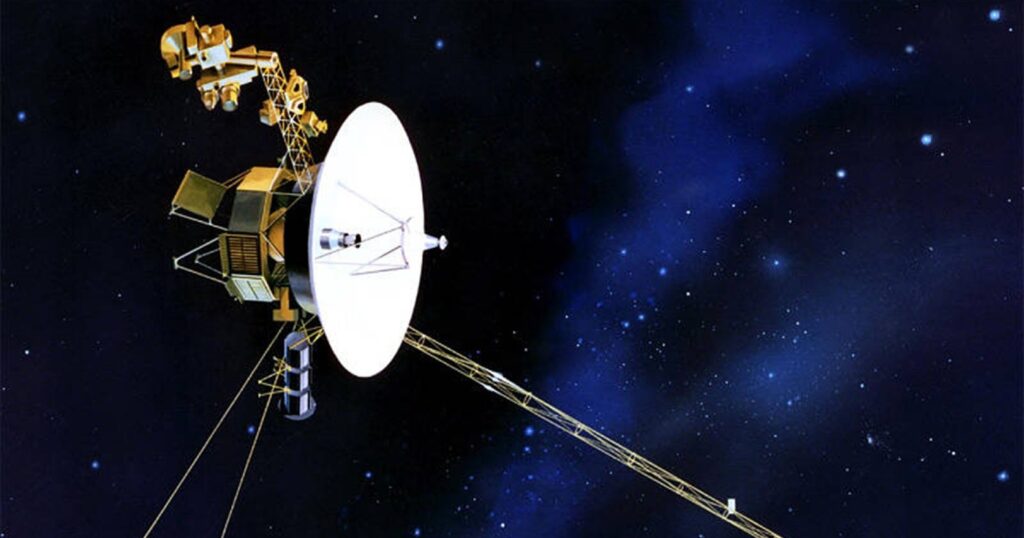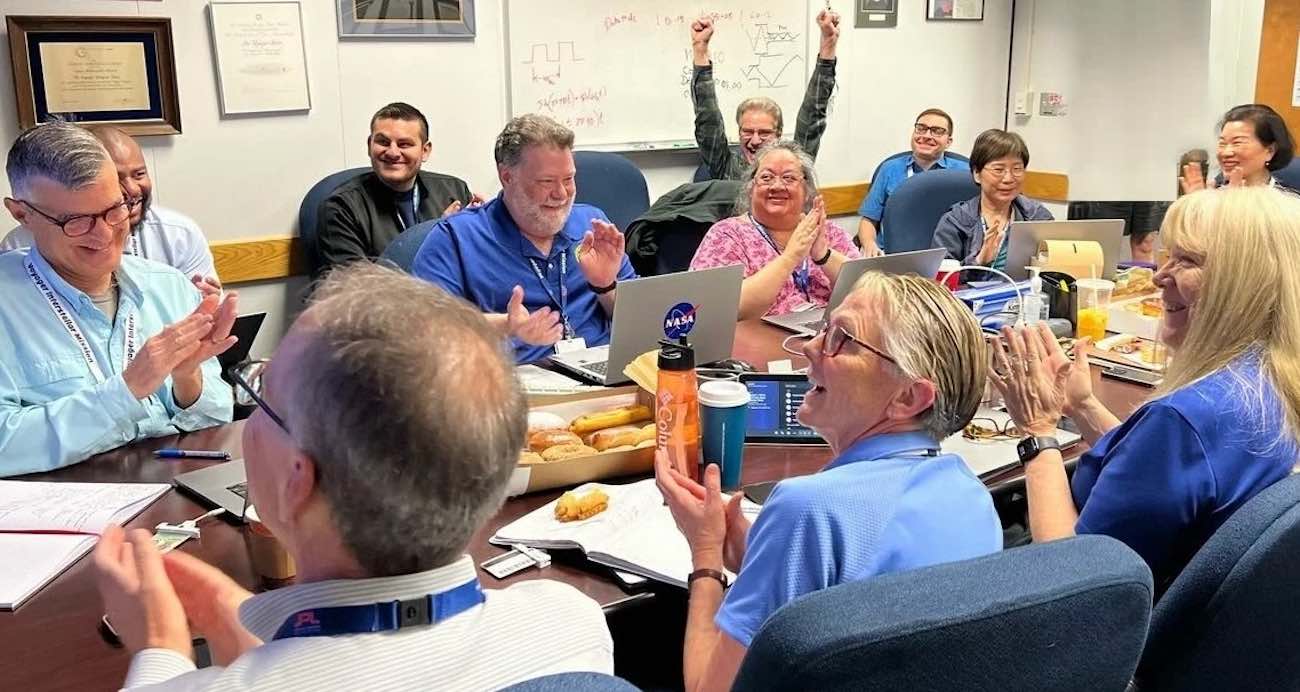
Last November, one of NASA’s most famous craft, Voyager 1, stopped transmitting messages to the great anxiety of those responsible for receiving them.
It wasn’t all stress though, because mission controllers could tell the spacecraft was still receiving their commands and otherwise operating normally.
Now however, the most distant object from the Earth made by humans is again sending data on the health and status of its onboard engineering systems as it drifts through interstellar space.
It’s been 46 years and 7 months since Voyager 1 left Earth, and 11 years and 8 months since it bade Pluto farewell and left our solar system.
In March 2024, mission control for Voyager 1 at NASA’s Jet Propulsion Laboratory at California Technical Institute, managed to hone in on the issue that was preventing two-way communication with the probe.
The team at JPL discovered that a single chip responsible for storing a portion of the flight data subsystem (FDS) memory—including some of the FDS computer’s software code—wasn’t, and still isn’t, working anymore.
The loss of that code rendered the science and engineering data unusable. Unable to repair the chip, the team decided to place the affected code elsewhere in the FDS memory. But no single location is large enough to hold the section of code in its entirety.
So they devised a plan to divide the affected code into sections and store those sections in different places in the FDS. To make this plan work, they also needed to adjust those code sections to ensure, for example, that they all still function as a whole. Any references to the location of that code in other parts of the FDS memory needed to be updated as well.
YOU MIGHT ALSO LIKE: NASA to Send ‘Message in a Bottle’ Into Space Designed to Communicate With Extraterrestrials
Once they had everything sorted out, they sent the modified code to its new location in the FDS memory on April 18th. A radio signal takes about 22 ½ hours to reach Voyager 1, which is over 15 billion miles (24 billion kilometers) from Earth, and another 22 ½ hours for a signal to come back to Earth.

When the mission flight team heard back from the spacecraft on April 20th, they saw that the modification worked: For the first time in five months, they were able to check the health and status of the spacecraft.
MORE SENTIMENTAL STORIES ABOUT ROBOTS: The Mars InSight Lander Signs Off on Social Media With Encouragement for Humanity – LOOK
Of the remaining scientific instruments on board, Voyager can still study the nature of cosmic rays and magnetic fields in interstellar space, but in as little as one year or perhaps just a little longer, even these will have to be powered off. By 2036, the probe will depart the Deep Space Network and be beyond all communications.
SHARE This Great News From An Old Interstellar Friend…




















